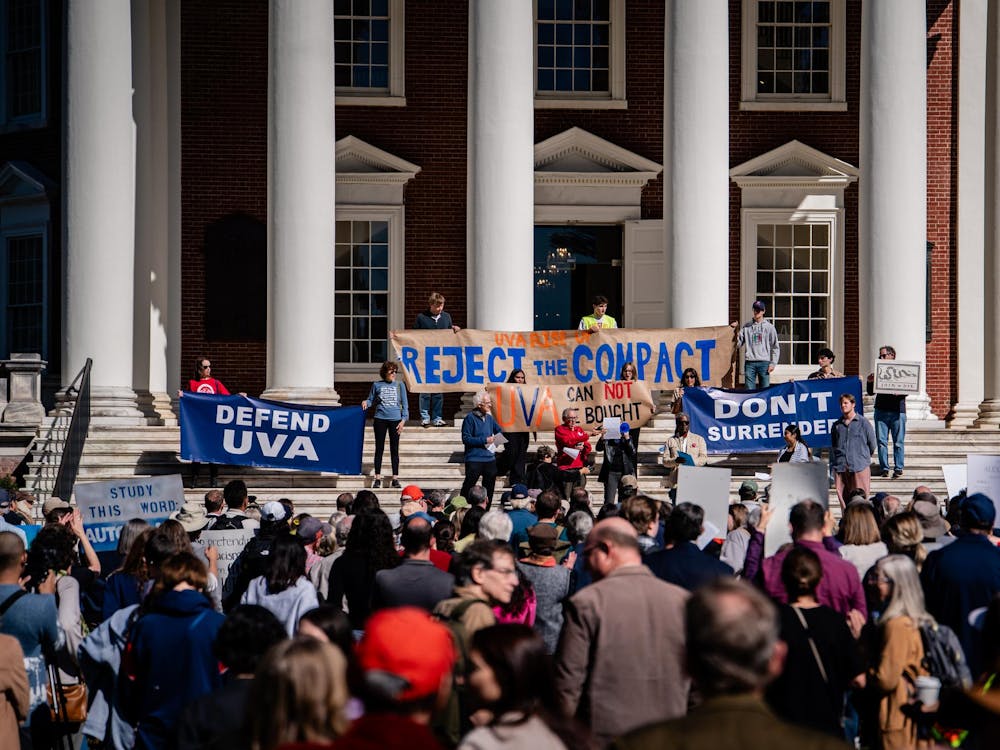IN HIS Nov. 9 opinion piece, "Data mining from clean sources," Sam Novack critiques the Sierra Student Coalition's Beyond Coal campaign as not being realistic and not taking into account the financial costs of the transition to clean and renewable energy.
The concerns raised about the directions and goals of Beyond Coal suggest that we are not getting our message across in the manner that we had hoped. We alone cannot decide which alternative would be the best for the University. It is a collective effort involving the student body, faculty and the administration. Our main goal is to have the University set a date to retire the coal plant. This will trigger a sequence of steps into determining the University's best option in terms of alternative energy.
The truth of the matter is that the University is not taking into account the full cost of coal. According to a 2010 study released by Clean Air Task Force, the side effects of producing energy from coal cost Americans $100 billion in health care every year. Not only that, but coal mining, while temporarily profitable, ultimately results in the destruction of Appalachian communities through decreasing air and water quality and real estate prices. This is not to mention the significant destruction to the environment it causes. As long as the University continues to rely on coal as a source of energy, we will be affiliated with all of these negative consequences.
The price of coal is increasing, while the price of renewable energy continues to drop. Recently, U.S. Secretary of Energy Steven Chu said that between now and 2026 solar power will become cheaper than fossil fuels. While the coal industry is slowly shrinking, solar and wind have been two of the largest growing industries during the continuing economic downturn, providing jobs when we desperately need them.
It is clear that relying on old forms of energy such as coal is not in our best interest anymore. We need to make a transition into a cleaner future.
The University is one of the best public institutions in the country and has come to stand for excellence; we should not settle for anything short of it. Being "as good as it can be" is not an option for an institution that is held in such high regard. As such, we need to live up to our standards as innovators. This poses an opportunity to rise to the challenge.
Beyond Coal is not just a local campaign, but one that is happening all across the country. Nationwide, 17 other schools have won the battle against coal by committing to retire their plants. They are solving their energy concerns with in-house solutions and are saving money by doing it! Why can't we do it as well?
Ohio State University has recently begun installing a geothermal system that will cut the school's energy costs by one-third. Ball State University has jumped out ahead of the others with its $70 million investment in geothermal and the school expects to save $2 million a year in energy costs. That money can now be redirected to hiring faculty, expanding the size of the student body and bringing other improvements to its campus. As a result, Ball State is getting a reputation as a leader in technology and higher education, something that our University ought to have as well.
Cornell University offers another, even better example of how the University can find its own in-house innovative solution. Cornell installed a system to use a nearby lake for the campus cooling system. A nearly $60 million investment, it is projected to pay itself off within 10 to 13 years and reduce energy consumption and reliance on fossil fuels.
These schools have taken the necessary steps to begin to solve the problem of reliance on fossil fuels and the greenhouse gases they emit. This is the problem our generation is going to have to solve. For the administration to say the University is committed to sustainability, yet not committed to joining these other schools in moving beyond coal is hypocritical and shows a lack of leadership.\nI know that we have the solutions here at this University. At least David Kwon ("To infinity and beyond," Nov. 4) and many others came here believing we did. What we need is to commit to finding that solution. The first step is to commit to stop burning an outdated form of energy. We encourage those of you advocating for clean energy to join us in starting the conversation and pushing toward a cleaner future.
Isabella Artiles is the events coordinator for the Sierra Student Coalition.






